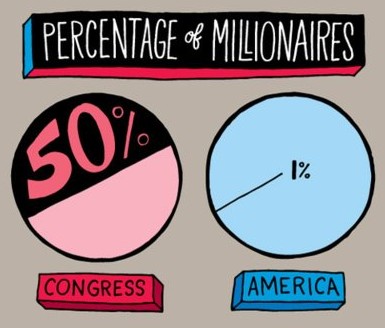In a truly representative democracy, the more public support there is for a policy, the more likely it would be to become law.

However, public support has almost no influence on what laws are passed. Whether there is 0% or 100% support for a policy, there’s a 30% likelihood that it will become law.

Our representative government is not socioeconomically representative of the governed. Half of the representatives in Congress are millionaires, compared to less than 1% of the general population.

The result is that public policy is far more consistent with the desires of the top 1% than the average person.
Solution: A Government Exchange Policy
Buckminster Fuller said that when trying to change something, instead of going up against it, create something new that makes the problem obsolete. The solution is to have the government issue everyone a receipt with an exchange policy.
Every citizen should have access to a shopping cart showing what their share of public resources will be spent on. They should have the ability to adjust their allocation as they see fit.
It’s important to recognize that our resources are finite, so it’s good to have an increase in one area automatically decrease resources in another area. Here’s a crude prototype that you’re welcome to fork and improve:
Do you have any ideas about how to optimize societal resource allocation? Please share them in the comments!
